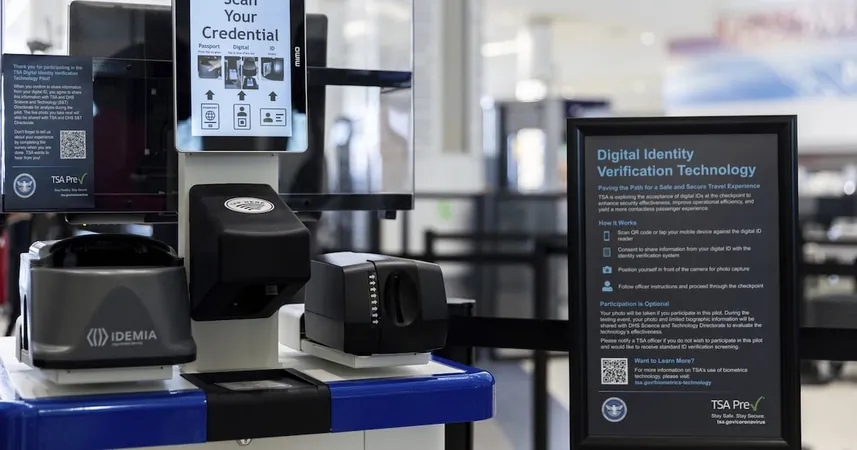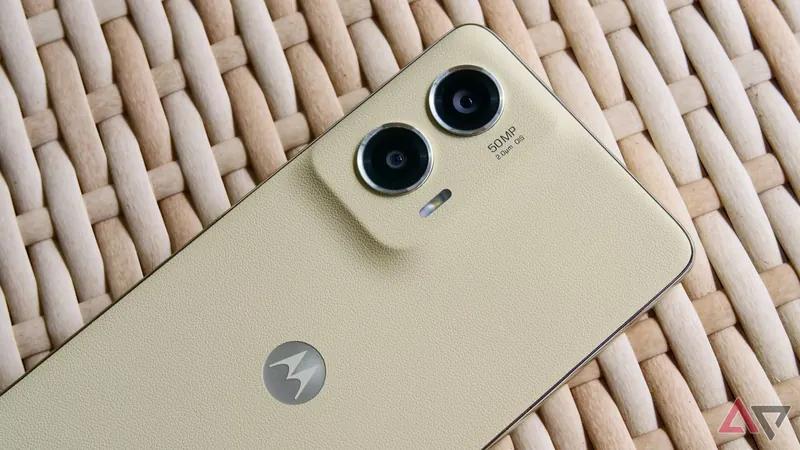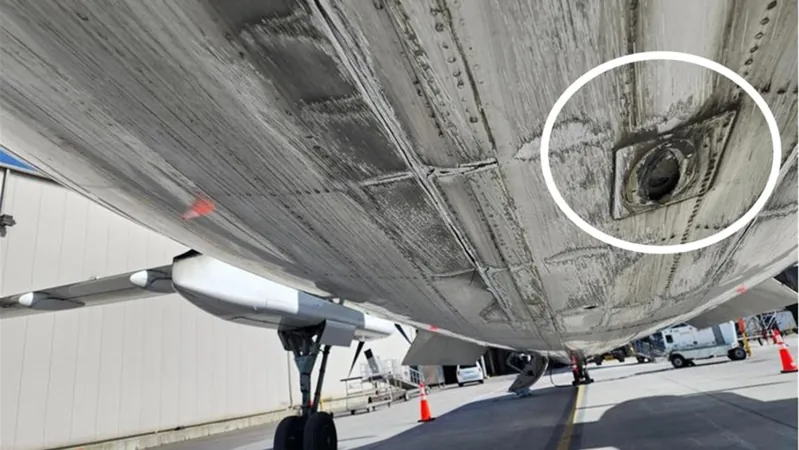
Say Goodbye to IDs! Air Canada Launches Groundbreaking Facial Recognition Technology at Gates
2024-11-28
Author: Emily
MONTREAL — In a move set to revolutionize air travel, Air Canada has become the first airline in Canada to implement facial recognition technology at boarding gates, allowing passengers to board without the need for any physical identification.
This innovative feature is part of the airline's ongoing effort to enhance efficiency and convenience for travelers.
Beginning Tuesday, passengers on most domestic flights departing from Vancouver International Airport will have the opportunity to board by simply walking up to the gate.
The program is voluntary, requiring participants to upload a photo of their face and a scan of their passport through the Air Canada app.
This shift marks a significant step towards a more seamless travel experience.
The digital ID initiative, which was initially launched as a pilot project in February 2023, is already active in Air Canada's Maple Leaf lounges located in Toronto, Calgary, and San Francisco.
Plans are underway to extend the technology to other airports across Canada in the near future.
While it may seem that Canadian airlines are lagging behind in biometric technology adoption, many U.S. airlines and international airports have integrated similar systems for years.
Notably, Delta Air Lines has allowed travelers at select airports to check bags and board flights using facial recognition since 2021, significantly speeding up the process.
In Europe, Frankfurt Airport has embraced this technology by enabling all airlines to utilize facial biometrics from check-in through to boarding.
This protocol was first introduced in 2020. This growing trend highlights a shift towards more automated processes in air travel.
However, as this technology moves forward, important concerns regarding privacy and data ethics persist.
Experts emphasize the critical need to address how data will be managed, stored, and protected.
John Gradek, a lecturer in aviation management at McGill University, cautioned about potential job losses associated with technology replacing human gate agents.
This revelation highlights the complex implications of such advancements.
Air Canada, for its part, has assured customers that their personal information is prioritized.
All data is transferred securely using encryption and deleted from systems within 36 hours post-departure.
The airline has also clarified that their facial recognition system is independent of any government programs, ensuring passengers' data remains private.
With these pioneering steps, Air Canada is not only enhancing the travel experience but also prompting critical discussions on the balance between technological advancement and the fundamental rights of privacy.
As they roll out this innovative biometric system, travelers can expect a future where flying may indeed be as easy as showing a smile!









 Brasil (PT)
Brasil (PT)
 Canada (EN)
Canada (EN)
 Chile (ES)
Chile (ES)
 España (ES)
España (ES)
 France (FR)
France (FR)
 Hong Kong (EN)
Hong Kong (EN)
 Italia (IT)
Italia (IT)
 日本 (JA)
日本 (JA)
 Magyarország (HU)
Magyarország (HU)
 Norge (NO)
Norge (NO)
 Polska (PL)
Polska (PL)
 Schweiz (DE)
Schweiz (DE)
 Singapore (EN)
Singapore (EN)
 Sverige (SV)
Sverige (SV)
 Suomi (FI)
Suomi (FI)
 Türkiye (TR)
Türkiye (TR)